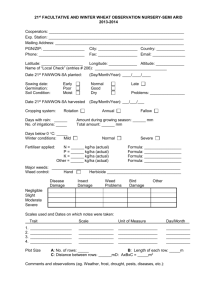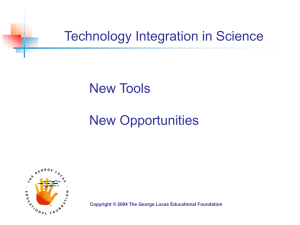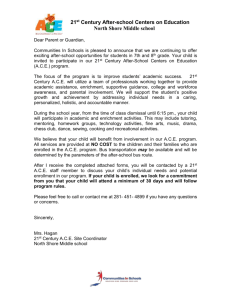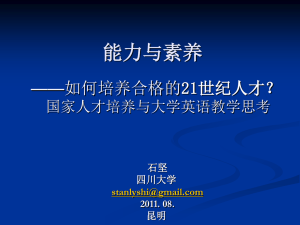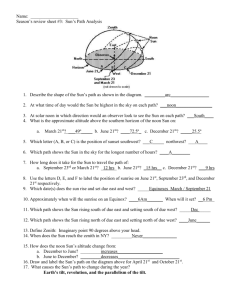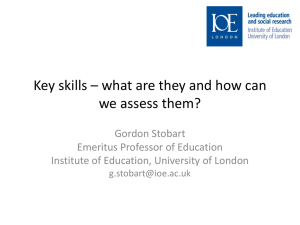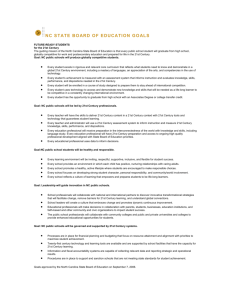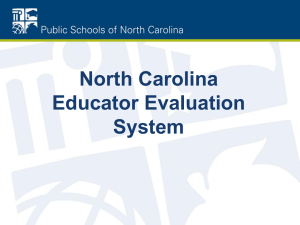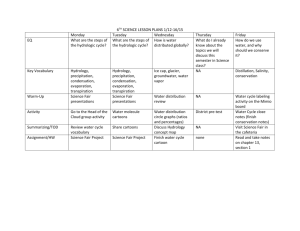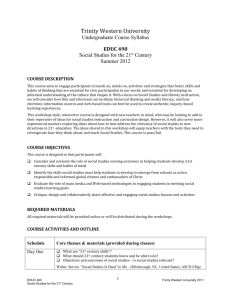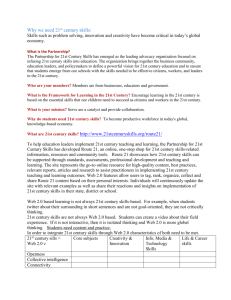450212Syl
advertisement
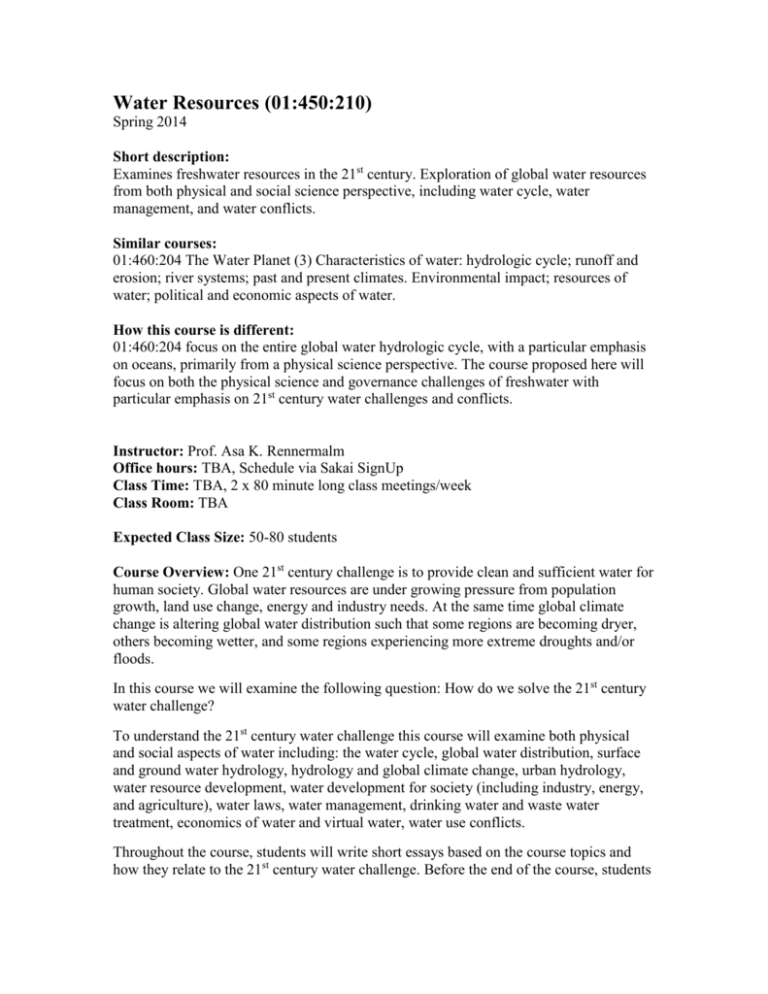
Water Resources (01:450:210) Spring 2014 Short description: Examines freshwater resources in the 21st century. Exploration of global water resources from both physical and social science perspective, including water cycle, water management, and water conflicts. Similar courses: 01:460:204 The Water Planet (3) Characteristics of water: hydrologic cycle; runoff and erosion; river systems; past and present climates. Environmental impact; resources of water; political and economic aspects of water. How this course is different: 01:460:204 focus on the entire global water hydrologic cycle, with a particular emphasis on oceans, primarily from a physical science perspective. The course proposed here will focus on both the physical science and governance challenges of freshwater with particular emphasis on 21st century water challenges and conflicts. Instructor: Prof. Asa K. Rennermalm Office hours: TBA, Schedule via Sakai SignUp Class Time: TBA, 2 x 80 minute long class meetings/week Class Room: TBA Expected Class Size: 50-80 students Course Overview: One 21st century challenge is to provide clean and sufficient water for human society. Global water resources are under growing pressure from population growth, land use change, energy and industry needs. At the same time global climate change is altering global water distribution such that some regions are becoming dryer, others becoming wetter, and some regions experiencing more extreme droughts and/or floods. In this course we will examine the following question: How do we solve the 21st century water challenge? To understand the 21st century water challenge this course will examine both physical and social aspects of water including: the water cycle, global water distribution, surface and ground water hydrology, hydrology and global climate change, urban hydrology, water resource development, water development for society (including industry, energy, and agriculture), water laws, water management, drinking water and waste water treatment, economics of water and virtual water, water use conflicts. Throughout the course, students will write short essays based on the course topics and how they relate to the 21st century water challenge. Before the end of the course, students will write a longer final paper with their own perspective on 21st century water challenge and possible solutions. These writings will form the basis for in-class discussions. Course goals: 1. Students will learn basic physical science concepts about water resources and its management. 2. Student will develop their own perspective on 21st century water resources and express this in through writing and class discussions Course goal assessment: Course goals 1 & 2 will be assessed through embedded assignments with rubric, which will determine the degree to which students are able to critically engage with the course material and formulate their own perspective on 21st century water challenges. Course material may include selected readings from the following textbooks: Principles of Water Resources: History, Development, Management, and Policy, 3rd edition, Thomas V. Cech. 576 pages, Wiley Modern Hydrology and Sustainable Water Development. S.K Gupta. 464 pages, Wiley-Blackwell Climate Change: What Science Tells us. Charles Fletcher. 265 pages, Wiley Class Format: Class time will devoted to lectures and class discussions. Final grade: The final grade will be consists of 100 points distributed as follows: Attendance, participation and quizzes in class: 15 Assignments: 20 Midterm 25 Final exam 25 Final essay 15 Grading scale follow Rutgers standard scale for undergraduate courses, no curve will be applied. Grade From To A 90 100 B+ 85 89.99 B 80 84.99 C+ 75 79.99 C 70 74.99 D 60 69.99 F 0 59.99 Policy on make up exams: Make up exam is only possible for extraordinary circumstances (bereavement, illness, official university business, jury duty, etc.). Arrangement for makeup exams must be made in advance of the exam, and an absence report has to be submitted with SAS self-reporting absence system (https://sims.rutgers.edu/ssra//) Policy on class participation and attendance: Active participation during class is expected. Classes cannot be made up. Quizzes may be used to record class participation. Extra credit: Extra credit opportunities may be announced throughout the semester Accommodations for students with special needs: Students who, because of disability, need accommodation for special needs should arrange this through the Office of Disability Services for Students. All students must be familiar to Rutgers wide policy on academic integrity
